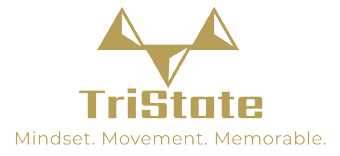Why I Still Train Like a Weightlifter (and Why You Should Too)
Growing up playing football, I got used to training hard in the summer, grinding through practices all week, and then showing up for one game on Friday night. That structure—putting in long hours for a short moment of performance—taught me the value of hard work. But when I found Olympic weightlifting, something about the process pulled me in deeper. Unlike team sports, where you prepare for a season, weightlifting gives you regular feedback on your progress. You train, you compete, and you see the results directly tied to your work. It’s a constant cycle of building, testing, and learning. And honestly, I fell in love with that grind.
What really stuck with me was the ability to celebrate small wins along the way—a better position, a smoother pull, hitting a lift under fatigue. Every part of training felt like it mattered. Then there are the lessons you learn on the platform—whether it's a big PR or a missed attempt, each moment teaches you something about your preparation, your mindset, and how you handle pressure. It's one of the few sports where the work and the outcome are so directly connected.
The thing that keeps me in weightlifting isn’t just the barbell—it’s the structure, the mindset, and the way it keeps me accountable to myself. For me, it’s similar to how someone might train for a marathon or triathlon. You don’t need to be in college or on a team to compete. Weightlifting gives me a lane to chase growth and to compete against the version of me from yesterday. The competition aspect is still there—but it’s more personal. It’s progress-focused. It’s purpose-driven.
Weightlifting isn’t just for weightlifters—it’s for anyone who wants to improve their explosive power and athletic ability. The Olympic lifts—like the clean and jerk, and the snatch—teach you how to move with speed, precision, and power. These aren’t just exercises; they’re skill sets that transfer to almost any sport, or even just to your daily life.
You don’t have to be a competitive weightlifter to reap these benefits, but once you’ve committed to mastering the lifts and incorporating them into your training, the rewards are significant. It teaches discipline, explosiveness, coordination, and humility. It’s a process that pays off inside and outside of the gym.
One of the most unexpected things weightlifting has taught me is time management. I don’t have unlimited time. Between being a dad, running a club, and working full-time, I’ve had to learn how to structure training around my life—not the other way around. Some days, you crush it. Some days, you miss. And some days, you just show up, move your body, and get better by 1%. The wins stack slowly—but they stack.
Whether you’re a CrossFit athlete, a runner, a coach, or someone who just wants to get stronger—try incorporating Olympic lifts and strength training into your routine. Learn it well. Respect the technique. Train with intention. And see what happens when you chase consistency over intensity. You might not become a weightlifter, but you’ll move better, feel stronger, and develop a mindset that carries way beyond the gym.
